Category: Infectious diseases

Radonovich et al. JAMA 2019 Sep 3;322(9):824-33
The advantage of N95 respirators over surgical masks in controlled settings were not demonstrated in preventing staff influenza infection in routine primary care.
Permanent link to this article: https://evidencebasedmedicine.com.au/?p=1791

Gagyor et al. BMJ 2015 Dec 23;351:h6544.
NSAIDs should not be recommended as a first line treatment for uncomplicated UTIs in women. Compared to empirical antibiotics, women experienced a significantly greater burden of UTI symptoms.
Permanent link to this article: https://evidencebasedmedicine.com.au/?p=1712
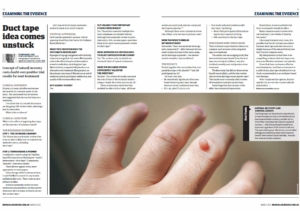
Kwok CS, et al. Cochrane database of systematic reviews 2012 Sep 12(9):CD001781
Duct tape should not be routinely recommended as wart therapy. There is no compelling evidence that duct tape is more effective than placebo.
Permanent link to this article: https://evidencebasedmedicine.com.au/?p=1707
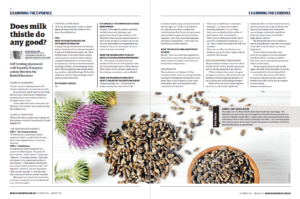
Rambaldi et al. Cochrane database Syst Rev 2007 Oct 17(4):CD003620
Milk thistle products cannot be recommended for chronic hepatitis B. Only limited research evidence of unclear/poor quality exists.
Permanent link to this article: https://evidencebasedmedicine.com.au/?p=1703
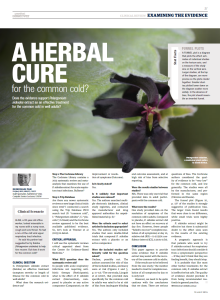
Timmer et al. Cochrane Database of Systematic Reviews 2013, Issue 10. Art. No .: CD006323.
There exists only very-low quality evidence of the effect of Pelargonium sidoides extract on the common cold.
Permanent link to this article: https://evidencebasedmedicine.com.au/?p=1669
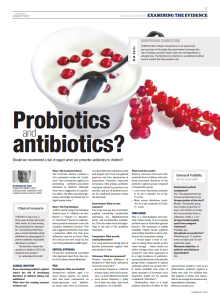
Fox MJ, et al. BMJ Open 2015;5(1): e006474
Probiotic yoghurt appears to reduce the incidence of diarrhoea in children receiving antibiotics in general practice settings.
Permanent link to this article: https://evidencebasedmedicine.com.au/?p=1658
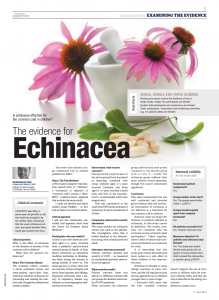
Taylor JA, et al. JAMA 2003; 290(21): 2824-30
Echinacea does not appear to be an effective treatment for the common cold in children.
Permanent link to this article: https://evidencebasedmedicine.com.au/?p=1638
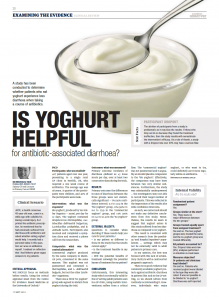
Conway S, Hart A, Clark A, Harvey I. BJGP 2007; 57(545): 953-959
Yoghurt eaters in this study might have suffered less antibiotic-associated diarrhoea as compared to those who ate no yoghurt.
Permanent link to this article: https://evidencebasedmedicine.com.au/?p=1595
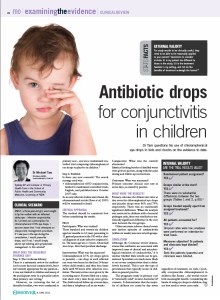
Rose PW, Harnden A, Brueggemann AB, et al. Lancet 2005; 366(9479): 37-43
The majority of children are cured by day 7 regardless of treatment.
Permanent link to this article: https://evidencebasedmedicine.com.au/?p=1577
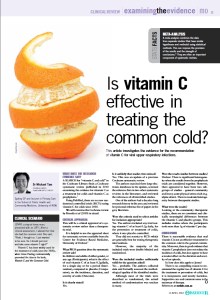
Hemilä H, Chalker E, Douglas B. Cochrane Database of Systematic Reviews 2007, Issue 3. Art. No.: CD000980.
Oral vitamin C is not an effective treatment for the common cold in the general community.
Permanent link to this article: https://evidencebasedmedicine.com.au/?p=1573
Fetching 10 of 12 items left ...











Recent Comments